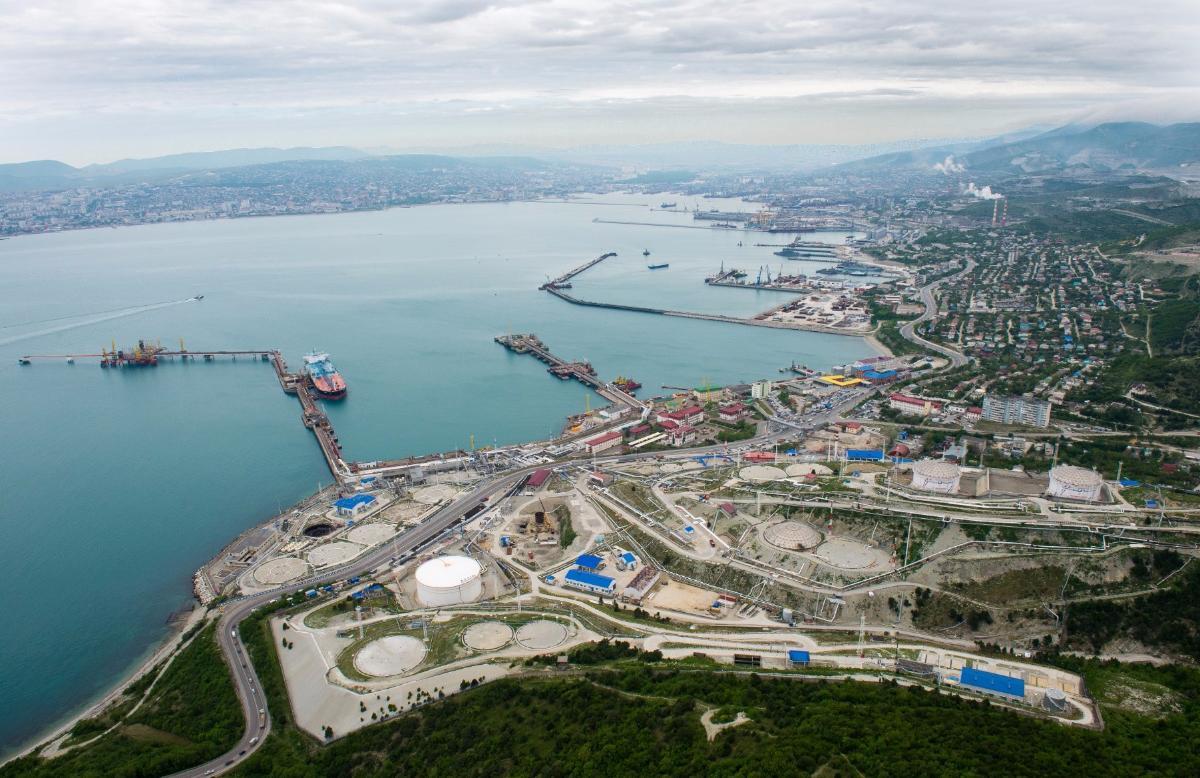The Caspian Pipeline Consortium (CPC) – the operator of the pipeline used by Kazakhstan to export the bulk of its oil – will halt its operations for 30 days following the decision made by a Russian court.
The ruling was issued by the Primorsky District Court of Novorossiysk on Tuesday, which satisfied Russian transportation safety watchdog Rostransnadzor’s demand for a temporary halt of operations at the CPC’s terminal in Novorossiysk due to documentary violations revealed in the Consortium's Oil Spill Response Plan during inspections.
The CPC said on Wednesday that it filed an appeal requesting to postpone the court’s ruling, arguing that any major disruption to the CPC, which handles about one percent of global oil, would put further strain on the global oil market which is facing one of the worst supply crunches.
Russia is closely engaged in the transportation of Kazakhstani oil to third countries, via the 1,511 km (939 mi) long Tengiz-Novorossiysk pipeline also known as the Caspian Pipeline Consortium (CPC). Connecting Western Kazakhstan’s oil fields with terminals located along the coast of the Black Sea, the CPC ships over two-thirds of Kazakhstan’s crude oil exports.
In 2021, the consortium shipped 60.7 million tons of oil through the Novorossiysk terminal, 53 million tons of which came from the Kashagan, Tengiz and Karachaganak fields in western Kazakhstan, while another 7.7 million tons were delivered by Russian companies.
Kazakhstan holds three percent of the world’s total oil reserves and it is the third-largest oil producer in the Caspian region, after Russia and Iran, but has a lack of direct access to the sea. Novorossiysk on the Black Sea is the main route to export oil from the world's largest landlocked country, which accounts for about 90% of the terminal's total crude exports.
The CPC pipeline has been in the spotlight since Russia launched what it calls a “special military operation” on February 24, which has driven down Russian exports amid Western sanctions and pushed up oil prices.
Both Russia and Kazakhstan are flush in natural resources like oil and gas, and the two post-Soviet countries have maintained strong partnerships in the energy sector through already existing close economic, technological and transportation initiatives.
However, relations between the close allies lopsided after President Kassym-Jomart Tokayev made it clear that Kazakhstan has no intentions to recognize the independence of the so-called Donetsk and Lugansk People’s Republics. Tokayev’s statement made at the plenary session of the 25th St. Petersburg International Economic Forum (SPIEF) went viral in the global media.
Some western media sources interpreted Tokayev’s statement as a turning point for the two countries’ relations, speculating that Kazakhstan is breaking away from Russia, while Russian media framed Tokayev’s response from a different angle.
Meanwhile, Kremlin spokesman Dmitry Peskov told reporters on Wednesday that the two countries maintain regular contact both at the highest level and at the level of governments, adding that Kazakhstan “undoubtedly” remained a friendly country for Russia.







 The number of evacuees from flooded areas in Kazakhstan has reached 97,852 people, including about 32,856 children since March 27.
The number of evacuees from flooded areas in Kazakhstan has reached 97,852 people, including about 32,856 children since March 27.
 The Islamic holy month of fasting, Ramadan comes to an end this week with the celebration of a joyous festival called Eid (meaning “festival” in Ar...
The Islamic holy month of fasting, Ramadan comes to an end this week with the celebration of a joyous festival called Eid (meaning “festival” in Ar...
 Iran's senior military leaders described the drone and missile attack on Israel on April 14 night as “successful".
Iran's senior military leaders described the drone and missile attack on Israel on April 14 night as “successful".
 Iranian President Ebrahim Raisi warned Israel that it would face a "real and extensive" response if it makes any "mistake" following Tehran’s missi...
Iranian President Ebrahim Raisi warned Israel that it would face a "real and extensive" response if it makes any "mistake" following Tehran’s missi...



